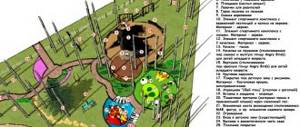Accidents on communal life support systems
The venerable age of engineering communications from time to time creates typical troubles for residents in the form of burst pipes, but sometimes provokes dangerous incidents - accidents. For example, a gas leak is quite capable of causing mass poisoning and even an explosion. Therefore, such emergency situations require a prompt response.
Learn more about what and why accidents occur on public life support systems and how they should be eliminated by authorized services.
Emergency service dispatching
In the field of automation of engineering systems, special attention is paid to dispatching. A dispatch system is a complex of hardware devices for monitoring and control. Traditional control schemes in the housing and communal services sector require a staff of operators working around the clock, duty teams whose responsibilities include periodic inspection of the objects assigned to them.
Monitoring the operation of engineering structures (boiler houses, pumping houses, treatment plants, substations) requires significant costs. In addition, the cause of most accidents is the human factor: oversight or inaction.
Dispatching of apartment buildings allows you to control the operation of life support systems, maintain apartment records, and manage communications remotely.
First of all, automation concerns control of the functions of elevators, barriers, boiler rooms, but today management companies have access to more effective integrated solutions, for example, regulation of the thermal regime of a building, automated collection of meter readings.
Where can I find a phone number to report an accident?
The management company provides residents with telephone numbers of one or more emergency services that provide maintenance services for apartment buildings. As a rule, information stands are placed at entrances, and contacts are duplicated in receipts. You can find out the ADS phone number at city information desks. If it is not possible to call, you can contact the dispatcher by pressing the communication button in the elevator.
Rules for receiving calls from residents
Applications received from users and homeowners are recorded in the emergency dispatch service log. The responsibilities of the dispatcher include notifying residents when certain specialists are called, and monitoring the timing of troubleshooting. Registration of applications can be carried out in specialized programs in electronic form. But in accordance with the requirements of Government Decree No. 331, the application register must be laced, numbered, and sealed with the ADS seal.
Response time to a call about an accident and time to eliminate it
The regulation, approved by clause 13 of the Government of the Russian Federation No. 416 of March 15, 2013, obliges emergency response services to act within the established time frame:
- localization of damage to engineering systems is carried out within 30 minutes from the moment the request is received;
- elimination of damage to utility networks – up to 3 days;
- blockages in drainage systems are eliminated within 2 hours;
- clogged garbage chutes - within 2 hours, but the period is limited by the law “On Silence” from 8 a.m. to 11 p.m.
The dispatcher reports any detected damage to engineering systems to the local self-government bodies.
What is an emergency housing and communal services service?
Fortunately, there is an emergency service to eliminate the consequences of emergencies in the housing and communal services sector. You need to remember this so as not to miss the opportunity to promptly seek help.
The emergency housing and communal services service is a structure that ensures control of the condition of the utility system and its uninterrupted functioning. It provides a prompt response in the event of an emergency or unusual situation. In other words, this is a service that you can resort to in case of accidents in electrical networks, sewerage, pipelines, and so on.
You can call the emergency service at any time of the day, because no one is immune from emergencies in the evening or night hours.
Dispatch offices are created to promptly respond to calls. This obligation was imposed on management organizations by the state. If a legal entity does not comply with it, it is subject to liability.
New requirements for ADS when managing apartment buildings from March 1, 2019
On March 1, 2021, new requirements came into force regarding the Rules related to the implementation of ADS activities in the management of apartment buildings (RF RF No. 331 dated March 27, 2018). Let's look at the main changes they affected.
Receiving calls by dispatcher
In connection with the innovations, the HOA dispatcher will be required to answer a call from either the owner or the tenant of the premises in the apartment building within a maximum of 5 minutes.
If it is not possible to answer the call within this period of time, then he must call this person back within the next 10 minutes after the call, or the resident who called must have the technical ability to leave any message, either electronically, or voice, or both . It must be reviewed by the service within a maximum of 10 minutes after receipt.
Application deadlines
Since the designated period, strict deadlines for eliminating any problems have been introduced . Eg:
- Emergency damage to water supply systems must be localized by the ADS within half an hour from the time of registration of the application, and completely eliminated no more than three days from the time of the emergency damage.
- No more than 2 hours are given to eliminate blockages in the drainage system from the time of registration of the application, and 2 hours are also given to clear the blockage of the garbage chute (in the period from 8 a.m. to 11 p.m. when applications are received within 24 hours) .
- Applications for the elimination of minor damage must be carried out continuously within 24 hours according to the deadline agreed with the applicant and the list of mandatory works and services.
The owner or tenant of the premises in the apartment building must be notified about the scheduled deadlines for fulfilling the application within half an hour from the moment of registration.
Execution of requests, control of deadlines and quality of their implementation
The new rules establish that ADS officials who are entrusted with the responsibility for executing the application must have at their disposal all the means, equipment and materials that will be needed to execute the received application.
In some cases, the execution of the appeal may require admission to the tenant’s premises in the apartment building. In this case, the ADS must notify the owner or tenant of the premises about the following:
- the date and time when access to the premises will be required;
- the reason why admission to the MKD is required;
- Full name of the ADF employee or several employees executing the accepted application.
Dispatch service employees who carry out a request must always have with them:
- service ID;
- a badge or uniform with the name of the organization, full name, etc. written on it;
- disposable shoe covers.
The deadlines for execution and the quality of fulfillment of requests are monitored using photo recording devices. In addition, the new rules provide for the conduct of various surveys of owners and tenants of housing in apartment buildings on the quality of execution of applications by ADS officials. The control results are entered into a special journal of applications or GIS housing and communal services.
If you want to know about the structure of HOAs, we recommend reading other articles. Find out who the chairman is, how he is appointed and how his salary is calculated, who the manager is, why an accountant and a board are needed.
How the work of emergency services is regulated at the legislative level
Federal legislation regulates the activities of emergency housing and communal services with the help of. This regulatory act sets out the rules for working with the housing stock, with special attention paid to the emergency dispatch service.
There is another regulatory document - GOST R 56037-2014. This is the national standard for dispatch and emergency repair services. It was approved and put into effect by order of Rosstandart dated June 11, 2014 No. 545-st.
Rules for the technical operation of housing stock have been introduced, regulating in detail the timing of troubleshooting. At the municipal level, as a rule, there are regulations for emergency housing and communal services in certain areas of work.
A key element of the utility system is emergency dispatch services (ADS). They are formed with the participation of several parties:
- management company (MC);
- homeowner association (HOA);
- housing construction cooperative (HBC).
Participants independently create the corresponding local regulatory act. This could be, for example, a regulation on the emergency dispatch service of the management company, which describes the staff of the ADS, its powers and responsibilities.
In turn, homeowners' associations and housing cooperatives include provisions on the activities of ADS in contracts with resource-supplying and service legal entities. Do your management companies, homeowners associations or residential complexes have such a document? If yes, it will be useful to familiarize yourself with it.
How the housing and communal services dispatch service should work - New requirements 2021
So, from March 1, 2021, the “latest” amendments introduced by Decree of the Government of the Russian Federation of September 13, 2018 No. 1090 come into force. They relate to the improper operation of emergency dispatch services of management organizations , which will be considered a gross violation of licensing requirements. The amount of the fine for gross violations of licensing requirements has not yet been officially approved, but the State Duma in the first reading adopted a bill that supplements Article 14.1.3 of the Code of Administrative Offenses with a clause according to which the fine will be: for an official of a management organization - from 150 to 250 thousand rubles; for a legal entity – from 300 to 350 thousand rubles.
Employees of management organizations have an incentive to read this article to the end
Since September 26, 2021, a new edition of the Rules for the implementation of activities for the management of apartment buildings, approved by Decree of the Government of the Russian Federation of May 15, 2013 No. 416 (hereinafter referred to as Rules 416), has been in effect. 1. How can I now receive calls to the emergency dispatch service? Have you seen the image of the Hindu deity Shiva? No, well, look... This is what a true dispatcher of the emergency dispatch service of the Criminal Code should now look like. According to clause 13 of Rules 416, the dispatcher must answer the call from the owner of the premises within 5 minutes. If the dispatcher did not have time to pick up the phone (he was eating, sleeping, talking with other residents) within 5 minutes, then: the dispatcher must call back within 10 minutes from the moment the caller hung up; the owner of the premises should be automatically asked to leave a voice message, which should be reviewed within 10 minutes from the moment of receipt. That is, the telephony of the management organization must automatically track the time of all calls and automatically display all voice messages. From a technical point of view, a regular phone cannot do this (and it also cannot record telephone conversations, but more on that later). If the owner of the premises hangs up without waiting for an answer (before 5 minutes), then the system should show this to the dispatcher, since administrative liability in this case can be avoided. The best option in this case is to use IP telephony and if, for example, we compare telecom operators (we don’t take Rostelecom, as practice has shown, its functionality is narrower than that of other companies), then the majority offers all of the above in a basic package of services. We have integrated IP telephony in our CRM system into dozens of companies throughout the Russian Federation and I know what I am writing about. 2. Is the response time to requests now tied to the time of the call? Unfortunately yes. In paragraph 13 of Rules 416 it is directly stated that emergency dispatch services are required to: localize emergency damage to in-house engineering systems of cold and hot water supply, sewerage and in-house heating and power supply systems no more than half an hour from the moment of registration of the application; elimination of blockages in the in-house sewerage system within two hours from the moment of registration of the application; elimination of blockages in garbage chutes inside apartment buildings within 2 hours from the moment of registration of the application, but no earlier than 8 o’clock and no later than 23 o’clock when applications are accepted around the clock (that is, it is not necessary to clean garbage chutes at night); supply of utilities in case of emergency damage to the in-house engineering systems of cold and hot water supply, sewerage and in-house heating and power supply systems within a time frame that does not violate the duration of interruptions in the provision of utility services established by the housing legislation of the Russian Federation; elimination of emergency damage to in-house engineering systems of cold and hot water supply, sewerage and in-house heating and power supply systems within no more than 3 days from the date of emergency damage. Based on the above response times (they were invented by amateurs, for whom “riser” and “bed” are physiological processes, and not parts of engineering systems), the countdown of the response period should be activated automatically as soon as an application from the owner (consumer) is accepted, and this again, manual tracking will be problematic. 3. Can the function of emergency dispatch service be performed by a contractor? Yes maybe. Both in the “old” and “new” editions, the management organization is obliged to organize the activities of the emergency dispatch service (hereinafter referred to as ADS), which can either be its own, or the ADS function can be performed by a contractor (clause 9 of Rules 416). Please note that in a situation where the contractor improperly performs the ADS function, the management organization will in any case be held administratively liable. In turn, the management organization may subsequently demand compensation from the contractor for the amount of the fine if the contractor, in accordance with the terms of the contract, is obliged to comply with the requirements for the work of the ADS. 4. In what mode should the ADS operate? According to clause 10 of Rules 416, the ADS must ensure round-the-clock registration of applications from owners and users of premises in the apartment building on “issues related to the provision of utilities, the maintenance of common property in an apartment building, the provision of services and the performance of work on the maintenance and repair of common property in an apartment building, as well as on the elimination of malfunctions and damage to in-house engineering systems and the fulfillment of other obligations of the management organization stipulated by the management agreement. In fact, this means that it is a fairly common situation when ADS works only during working hours, and in the evening calls are received on the mobile phone (which may be dead) of an individual employee (who may be sleeping), which can lead to claims and quite significant fines. In addition, according to clause 17 of Rules 416, registration in the register of residents’ applications must be carried out using a recording of a telephone conversation. If you have an “evening” dispatcher on your mobile phone, then automatically forward calls after a certain time from your “landline” number to the employee’s mobile phone. Then the call will definitely be recorded in the database. In our CRM system “Kvartira.Burmistr.Ru” this is implemented through integration with telecom operators. 5. How long should telephone conversation records be kept? Rule 416 does not provide a direct answer to this question, so let’s start from the maximum risks for the management organization. Let’s not take a situation where the management organization believed in the God of housing and communal services and “gave up” on the requirements invented by the gifted team of A.V. Chibis. In this case, the risks of being held accountable for the lack of recordings of telephone conversations are enormous and, if you are not brought to trial today, then your time has not yet come. Let's consider a situation where March 1, 2021 has arrived, and the management organization keeps paper logs in the old fashioned way and does not know about any recording of telephone conversations. According to clause 1 of Article 4.5 of the Code of Administrative Offenses of the Russian Federation, a decision in a case of an administrative offense cannot be made after two months (in a case of an administrative offense considered by a judge - after three months) from the date of the administrative offense. That is, the minimum storage period for recordings of telephone conversations is three months, but knowing the zeal of the inspectors, it is better to store recordings of telephone conversations for as long as possible, especially since modern services allow this. For example, our partners Telfin company offer 500,000 minutes of telephone conversation recording (347 days of non-stop chatting) in the minimum package of services. 6. How to notify local authorities about emergency situations on the common property of apartment buildings? An additional requirement that will appear from March 1, 2021 is the obligation of the emergency dispatch service to inform the local government about emergency damage to the in-house engineering systems of cold and hot water supply, sewerage and in-house heating systems, as well as the nature of the damage and the planned time frame for its elimination (p .13 of Rule 416). Traditionally, officials forgot to indicate the timing of notification to local self-government bodies and methods of such notification. Let's look for the optimal and most importantly simple way to notify officials, and for this we open Part 1 of Art. 10 of the Federal Law of 02/09/2009 No. 8-FZ “On ensuring access to information about the activities of state bodies and local governments.” There we see that “local government bodies use the Internet to post information about their activities, where they create official websites indicating email addresses to which the user can send a request and receive the requested information.” That is, information on each emergency situation can be safely sent to the local self-government body by email, and what they will do with it there does not concern the management organization. In our system, we have implemented automatic sending of emergency requests from the dispatch log to the e-mail address of the local self-government body, which is entered into the CRM system by the user. That is, the dispatcher and the head of the management organization do not need to worry at all about the lack of extremely necessary information from representatives of local self-government bodies, and the principle “fire and forget” applies here. 7. In what form should dispatch logs be kept in the ADS? It is correct to write not “ADS dispatch logs”, but as written in paragraph 17 of Rules 416 “a log of applications for owners and users of premises in apartment buildings”, but this is too long and I will write “a log of applications”. Registration of applications must be carried out in the application register or in an automated system for recording such applications. In the text of the previous paragraph, I specifically highlighted the conjunction “or”, which makes it possible to keep logs of applications in the old-fashioned way in paper form, without using miracles of engineering in the form of computers, which are hated by many dispatchers. Moreover, the same paragraph 17 of Rule 416 directly states that “the application logbook must be laced, numbered and sealed with the seal of the emergency dispatch service.” But let's dig deeper. To do this, we open clause “e” clause 4(1) of the Regulations on licensing business activities for the management of apartment buildings, approved by Decree of the Government of the Russian Federation of October 28, 2014 No. 1110 and we see that the refusal to transfer technical documentation to apartment buildings is classified as gross violations of licensing requirements, the amount of the fine for which I cited at the very beginning of the article. What does the log of residents’ requests and technical documentation have to do with it, you ask. In order to make sure that everything is in order with my brain activity, we will open the Decree of the State Construction Committee of the Russian Federation dated September 27, 2003 No. 170 “On approval of the Rules and Standards for the Technical Operation of the Housing Stock,” which contains a “wonderful” paragraph 1.5.3, according to which includes logs of residents' requests as part of the technical documentation for long-term storage. Taking into account the fact that, according to clause 3.1 of Article 161 of the Housing Code of the Russian Federation, upon termination of management of an apartment building by a management organization (HOA), only three working days are given to transfer technical documentation to the apartment building, and the vast majority of management organizations and HOAs keep application logs in paper form, then in order not to receive a fine for a gross violation of licensing requirements, you will have to: Make extracts from the “general” application register, which previously displayed applications for all houses in the management regarding applications that fell on the house that “left” the management, lace up, number and certify all this with the seal of the organization. Switch in advance to automated application recording systems, which, although not mandatory, allow you to generate any logs for any time. Thus, the system we developed for automating the work of management companies and homeowners associations (at the time of writing the system is used by more than 700 companies) allows you to upload data in the context of apartment buildings, periods, types of work, performers for work and more than 20 more criteria with one click of the mouse. When leaving home, all you have to do is print out the unloading, “punch a hole”, lace it up and put a stamp on it. 8. How can residents apply to the ADS? Many people think that application logs are formed solely on the basis of telephone calls that come directly to the emergency dispatch service, but this is not so. If we turn to clause 17 of Rule 416, we can see that “applications are accepted by direct contact with the emergency dispatch service, including by telephone, as well as by direct communication via intercoms installed in the entrances of apartment buildings and cabins elevators, or other possible means of communication." Thus, telephone communication is only one channel for receiving applications. It is clear that owners rarely contact the emergency dispatch service directly, since management organizations do not disclose the addresses of such secret places on information stands in their offices and on official websites. Therefore, the owners of the premises come to the offices of the management organizations themselves and leave applications there orally or in writing. As a result of oral or written requests, requests to the emergency dispatch service are also generated. Regarding calls to the emergency dispatch service using direct communication via intercoms installed in apartment building entrances and elevator cabins, the situation is ambiguous. According to the law, loud-speaking communication with elevator passengers must be provided by the emergency dispatch service of the management organization (clause 11 of Rules 416), but in practice, most often this function is provided by the dispatch service of a specialized elevator organization and applications received to the specialized elevator organization in the manager’s application log organizations are not displayed. Such interaction may lead to claims from inspectors. Based on our CRM, we have already implemented quite a large number of projects that have allowed us to maintain a single log of applications, which displays applications accepted at the office of the management organization, in the emergency dispatch service and applications accepted directly by contractors. For a contracting organization, the cost of the system is only 500 rubles per month, regardless of the number of employees and the number of management organizations and homeowners associations served.
Areas of responsibility and responsibilities of emergency housing and communal services
From the name of the service it becomes obvious that its main area of responsibility is the area of eliminating housing and communal services accidents. Damage can be caused by various reasons: from low-quality or dilapidated equipment to weather events that lead to the destruction of the power grid and roof.
The responsibilities of the emergency housing and communal services service are to eliminate the emergency in the communal life support system within the required time frame.
A breakdown can happen anywhere in a common household, including the local area. Emergency responders will also help if problems arise inside the apartment, but at your expense.
The list of ADS actions consists of:
- Acceptance of an accident claim.
- Sending an emergency team consisting of specialists of the required profile (roofer, plumber, electrician) to the site.
- Elimination of the causes of the accident.
To quickly eliminate any malfunctions that have arisen, you need to have an idea of what is included in the emergency maintenance of an apartment building. So, the emergency service is called in the following situations:
- damage to pipelines of engineering equipment systems (both water utilities and gas networks);
- the flow of water into residential and utility premises - pipe breaks and leaks;
- malfunctions of electrical equipment: input distribution devices, electrical cables (break or damage).
- Stopping the power supply in an apartment, entrance, building.
- clogged waste collection systems.
Having understood the situation at the scene of the accident, the municipal emergency service has the right to involve other specialized repair services in eliminating it: gas workers, signalmen. And in houses managed by HOAs or housing cooperatives, emergency repair services of resource supply companies should be called.
Municipal emergency services deal with communal troubles in courtyards and on the streets, as before.
So, we have decided on the powers of emergency housing and communal services. But where should you go in case of a malfunction? Considering that an accident can happen at any time, every resident of an apartment building should have a list of emergency phone numbers and addresses.
List of responsibilities of the emergency dispatch service (ADS) in the housing and communal services sector (management of apartment buildings)
From March 1, 2021, a number of changes to the regulations governing the management of apartment buildings come into force, namely:
— a new edition of clause 13 of the Rules for the implementation of activities for the management of apartment buildings, approved by Decree of the Government of the Russian Federation of May 15, 2013 No. 416 “On the procedure for carrying out activities for the management of apartment buildings,” which establishes new requirements for the work of the emergency dispatch service (hereinafter referred to as ADS) ;
— subparagraph “h” to paragraph 4.1. Decree of the Government of the Russian Federation dated October 28, 2014 No. 1110 “On licensing business activities for the management of apartment buildings,” which adds to the list of gross violations of licensing requirements violations of the requirements for the implementation of emergency dispatch services provided for in paragraph 13 of Rules 416.
Taking into account the March changes, a list of responsibilities of the emergency dispatch service (ADS) has been prepared:
1. The ADS operates around the clock.
2. ADS carries out daily (current) control over the operation of intra-building engineering systems of apartment buildings, quality control of utility resources at the interface between elements of intra-building engineering systems and centralized networks of engineering support.
3. ADS employees register applications from owners in the journal around the clock
and users of apartment building premises on issues related to the provision of utilities, the maintenance of common property in an apartment building, the provision of services and the performance of work on the maintenance and repair of common property in an apartment building, as well as the elimination of malfunctions and damage to in-house engineering systems.
4. Applications are accepted by direct contact
in ADS
,
including
through telephone communication,
as well as
through direct communication via intercoms installed in the entrances of apartment buildings and elevator cabins,
or other possible means of communication.
5. In this case , answering the owner’s phone call
or the user of the premises in an apartment building, the ADS dispatcher must provide an emergency dispatch service within no more than 5 minutes, and if a response is not provided within the specified period, call him back
within 10 minutes
after receiving his telephone call to the ADS. If the owner left a voice message and (or) electronic message, it must be reviewed by the dispatcher within 10 minutes of receipt.
6. Registration of applications
is carried out in a journal for recording applications from owners and users of premises in apartment buildings or in an automated system for recording such applications (if available) and
using a telephone conversation recording in accordance with the legislation of the Russian Federation.
7. Upon receipt of a request, the ADS dispatcher finds out the reasons, the nature of the request and makes prompt decisions on interaction with other emergency repair services. Information about the decision made is recorded in the application logbook or the state information system of housing and communal services in the case of maintaining an application logbook in this system.
8. When registering an application, the ADS dispatcher informs the applicant with its registration number and information about the regulatory deadlines and measures for executing the application.
9. When registering an application or within 30 minutes from the moment of its registration, the ADS dispatcher must inform the owner about the planned timing of the application.
10. If the execution of an application requires access by an ADS employee to a premises in an apartment building, the emergency dispatch service informs the owner or user of such premises about the planned date and time of the start of the execution of the application, the reasons for the need to provide access to the premises, as well as the last name, first name, patronymic (if any) of the emergency dispatch service employee(s) who will carry out the execution of the application.
11. Emergency dispatch service employees ensure the execution of received requests on time:
·
localization of emergency damage to in-house engineering systems of cold and hot water supply, drainage and in-house heating and power supply systems no more than half an hour from the moment of registration of the application;
· elimination of blockages
in-house engineering system
within two hours
from the moment of registration of the application;
· clearing clogged garbage chutes
inside apartment buildings
within 2 hours from the moment of registration of the application, but not earlier than 8 hours and no later than 23 hours
when applications are accepted around the clock;
· supply of utilities in case of emergency damage to the in-house engineering systems of cold and hot water supply, sewerage and in-house heating and power supply systems within a time frame that does not violate the duration of interruptions in the provision of utility services established by the housing legislation of the Russian Federation;
· elimination of emergency damage to in-house engineering systems
cold and hot water supply, drainage and in-house heating and power supply systems within no more than 3 days from the date of emergency damage.
12. When receiving signals about an accident or damage to the internal engineering systems of cold and hot water supply, drainage and internal heating and electrical supply systems, information and telecommunication networks, gas supply systems and internal gas equipment that are part of the common property of the owners of premises in an apartment building, emergency The dispatch service reports this to the emergency services of the relevant resource-supplying organizations and eliminates such accidents and damages independently or with the involvement of these services, and in cases where the legislation of the Russian Federation provides for special requirements for the implementation of emergency dispatch service activities by resource-supplying organizations, the emergency dispatch service reports this to the emergency services of the relevant resource supply organizations and monitors their elimination of such accidents and damage.
13. The ADS employee ensuring the execution of the application is required to have with him an official ID, an identification mark (badge, patch on clothing, etc.) indicating the name of the organization, surname, first name, patronymic (if any) and professional specialization, as well as disposable shoe covers.
14. The ADS employee who ensures the execution of the application controls the deadline for its execution, signs a certificate of completion with the applicant and takes photographs of them. The control results are entered into the application log.
15. ADS carries out operational control of the timing and quality of execution of received applications using prompt and periodic surveys of owners and users of premises in an apartment building regarding the quality of execution of received applications.
16. All information obtained as a result of continuous monitoring of the operation of MKD engineering equipment is reflected in the ADS in the relevant journals that are maintained, including in the form of electronic documents.
17. The ADS, using a dispatch system, provides control of gas contamination in technical undergrounds and sewers and loudspeaker (two-way) communication with elevator passengers.
Information provided by the Housing and Communal Services Department.
Return to list
ADS or ODS notification
Management companies, homeowners' associations and housing cooperatives are responsible for informing citizens. Contact details of the emergency dispatch service must be posted on information boards in or near each entrance.
The emergency dispatch service of the housing and communal services, as a rule, is part of the organization servicing your apartment building. Management companies, partnerships or cooperatives are required to create an ADS.
If resources or limited staff do not allow management companies, homeowners' associations and housing cooperatives to perform this function independently, they enter into an agreement for the provision of services with an organization engaged in emergency dispatch services.
In addition to the emergency service, there is also a joint dispatch service (UDS). For those who do not know what the UDS in housing and communal services is, let us clarify: this is a unified system that concentrates information about management companies, heat, water, gas, and electricity supply in a single automated information base.
Such a service is formed within the district. Its work makes it possible to organize interaction between suppliers and end consumers of housing and communal services.
Dispatch services, both ADS and ODS, accept calls and requests around the clock. An emergency dispatcher records calls from residents or utility companies, coordinates the execution of requests, and enters information into reports.
Organization of emergency dispatch services in apartment buildings according to new rules
Comments
An important indicator of the work of an organization servicing an apartment building is emergency dispatch service.
It is very important for any resident that requests , including in the event of utility emergencies, submitted to the service organization, are executed promptly and efficiently.
Emergency dispatch service in MKD
At the end of 2021, the Government of the Russian Federation introduced amendments to the Decree of the Government of the Russian Federation dated May 15, 2013 No. 416 “On the procedure for carrying out activities for managing apartment buildings” (hereinafter referred to as the Rules), which outlined clear requirements for the procedure for organizing emergency dispatch services on apartment buildings .
Despite the fact that the changes regarding the new requirements for the work of the emergency dispatch service began to take effect on March 1, 2021 , many residents are not yet familiar with them and do not know what requirements are imposed on service organizations in the matter of emergency dispatch service.
Now, the organization of an emergency dispatch service in an apartment building (hereinafter referred to as ADS) is subject to quite serious requirements , for failure to comply with which the management company, for example, can be punished with a large fine.
Organizing the work of ADS has become mandatory for management companies, homeowners' associations and cooperatives , including the possibility of concluding agreements for the provision of such services with third-party organizations.
When directly managing an apartment building (hereinafter - MKD) by the owners of the premises in this building, provisions on the implementation of ADS activities must be included in agreements for the maintenance and repair of common property, for the supply of utility resources, or a separate agreement must be concluded with the organization providing such services .
The emergency dispatch service must operate around the clock.
The ADS must exercise daily (current) control in the following areas:
→ in-house engineering systems;
→ quality of communal resources;
→ round-the-clock registration of applications and monitoring the timing of their implementation, on issues related to the provision of utilities, maintenance of the common property of apartment buildings, elimination of malfunctions and damage to in-house engineering systems, as well as the fulfillment of other obligations related to the management of apartment buildings.
→ taking prompt measures to ensure the safety of citizens in the event of emergency situations or the threat of their occurrence.
Deadlines for executing applications and informing residents of apartment buildings by the emergency dispatch service:
The owner or user of the premises in the apartment building should receive a response to a telephone call to the ADS within no more than 5 minutes . If there is no response, ADS representatives must contact the owner or user of the premises within 10 minutes by telephone after receiving a call from him . It is also possible to leave a voice message or use an email message, which are reviewed within 10 minutes of receipt . At the same time, the owner or user of the premises must be informed about the planned timing of the application within half an hour from the moment of registration of such an application.
Localization of accidents on in-house engineering systems of cold, hot water supply, sewerage, heating and electricity supply should be carried out no more than within 30 minutes from the moment of registration of the application .
Blockages in the in-house drainage system must be cleared within 2 hours from the date of registration of the application .
Garbage chute blockages must also be cleared within 2 hours from the moment of registration of the application , but in the period from 8.00 to 23.00 when applications are accepted around the clock.
The supply of utilities in the event of emergency damage to in-house engineering systems must be provided within a time frame not exceeding the established duration of interruptions in the provision of utilities provided for by current legislation (permissible periods are indicated in Appendix No. 1 of the Rules approved by Decree of the Government of the Russian Federation of May 6, 2011 No. 354) .
Emergency damage to in-house engineering systems must be repaired within 3 days.
Applications for the elimination of minor faults and damages are executed within the time limits agreed upon with the owner or user of the premises who sent such an application.
The procedure for receiving and registering an application submitted to the ADS:
Applications to the emergency dispatch service are accepted upon direct contact from the owner or user of the apartment building using telephone communication, direct communication via intercoms located in the apartment building entrances or elevator cabins, as well as through other possible means of communication.
Applications received by the ADS must be registered in the application log or in an automated system for recording such applications (if available) using a conversation recording. The application log must be laced, numbered, sealed, and must be located in the ADS premises. If necessary, the owner or user of the premises should have the opportunity to inspect his records relating to his application.
Upon receipt of an application, ADS finds out the reasons, the nature of the application and takes the necessary actions to fulfill it, in accordance with the deadlines specified in the Rules.
The received application is assigned a registration number , which is communicated to the resident along with information about the timing and measures for its implementation .
ADS employees who travel to execute requests must have the necessary equipment and materials to execute the request.
If the execution of an application requires access to a specific residential or non-residential premises in an apartment building, then the emergency dispatch service informs the resident about the planned date and time of execution of the application, the reasons for the need to provide access to the premises , and also provides the last name, first name and patronymic (if any) employee who will execute the request.
An ADF employee must have a service ID, identification mark (badge, patch on clothing, etc.) indicating the name of the organization, surname, first name, patronymic, professional specialization and disposable shoe covers.
The emergency dispatch service must monitor the timing and quality of execution of requests, including through photographic recording and prompt surveys of apartment building residents on the quality of execution of received requests. The results of the execution of applications are entered into the application log.
In conclusion, it is worth noting that the introduction of such rules and procedures for the emergency dispatch service in an apartment building should improve the quality of work, service and execution of requests from residents . Applications submitted to the ADS must be executed within specific deadlines , which outlined the innovations, and for residents of apartment buildings such changes have long been necessary.
In some organizations, applications in the ADS were not even registered, were not executed at all, or were not executed quite promptly, as they should be done, and no one bore any control or responsibility. Now the situation, taking into account changes in legislation, has changed a little, and for failure to comply with the law, the management company may receive a fine.
But there is one more point that I would like to draw attention to - compliance with all new provisions of the Rules may entail additional costs for owners for ongoing maintenance. Funds for organizing such ADS work with various means of communication, with the ability to record conversations, caller ID, the use of automated systems for recording applications, increasing the number of ADS employees for quick response, informing residents, executing applications on time, and so on, will come from the current content, however, as when concluding an agreement with a separate organization for the provision of emergency dispatch services.
If the fee for current maintenance is not increased for these types of services, then such costs will have to be paid towards some other work that was planned to be performed on the house.
Emergency stock in housing and communal services
Since emergencies occur suddenly, services must always have the technical means to eliminate the consequences. Repair activities cannot be delayed due to lack of materials and spare parts. Who ensures their availability?
Currently, the creation of a reserve is financed at the municipal level from the budget of the district in which your housing and communal services enterprise is located. The district administration can organize direct management of the emergency stock of ADS itself - a kind of “warehouse” of material and technical resources for the housing and communal services system. The stock must be monitored and replenished.
What does emergency supply include? The set of components may vary, but, as a rule, the following products are stored in the warehouse:
- pumping units and equipment;
- valves and gate valves for pipes of various diameters;
- pipes;
- instrumentation;
- electric motors;
- wires, electrical cables, magnetic starters and so on.
In what cases do residents of apartment buildings call emergency services?
Emergency situations in communal life support systems can occur both within one residential building and in sections of city networks. The most common problems in housing and communal services that fall within the scope of emergency services:
- Water supply systems: disruptions in the operation of water towers, distribution networks, pumping or water treatment equipment.
- Sewerage: emissions of pollutants, blockages, corrosive damage.
- Gas leaks: destruction and ruptures of intra-house and distribution gas pipelines, malfunctions at distribution points.
- Electrical supply: damaged lines.
- Heating mains and boiler houses in winter: wear or failure of equipment due to pressure or temperature transfers.
Residents of apartment buildings have the right to contact the ADS:
- hot or cold water was turned off without warning;
- the apartment is flooded with water;
- no electricity;
- the temperature of air and hot water has decreased in winter;
- smell of gas or smoke in the entrance;
- sewer blockage.
ADS will also take action in the following situations:
- garbage chute malfunction;
- short circuits, malfunction of electrical appliances in public areas;
- the door to the technical room was broken;
- the basement of the building is flooded;
- roof leak;
- damage to drainpipes and elements of drainage systems.
When signals about accidents are received in areas of city networks, transformer substations and incoming cabinets, the emergency services of the relevant enterprises are called.
Time frame for eliminating accidents
Most problems in utility systems require urgent elimination, therefore the Rules approved by Decree of the Government of the Russian Federation dated September 27, 2003 No. 170 establish deadlines for eliminating accidents.
The countdown of the period begins from the moment a fault is detected by a housing and communal services worker or a call is registered by an emergency service dispatcher. Here are the most common problems and deadlines for their elimination.
| Type of damage | Maximum time to resolve the problem |
| Roof leaks in some places | 1 day |
| Malfunctions of pipelines and their connections | Immediately |
| Clogged or broken parts of the garbage chute | 1 day |
| Electrical short circuit | Immediately |
| Problems with the elevator | 1 day |
| Leaking faucet of washbasin, sink, toilet | 1 day |
| Drainage system malfunction | 5 days |
Housing and communal services news
From March 1, 2021, emergency dispatch services (hereinafter referred to as ADS) in MKD begin to work according to new rules, which were approved by Decree of the Government of the Russian Federation dated March 27, 2018 No. 331.
ADS daily monitors the operation of the building's in-house engineering systems and the quality of utility resources at the interface between the elements of in-house engineering systems and centralized utility networks.
ADS is ready to register and monitor the implementation of applications from owners and users of premises in apartment buildings 24 hours a day. Owners and users of premises in an apartment building contact the emergency service if something is wrong with:
- provision of utilities;
- maintenance of common property;
- provision of services and performance of work on the maintenance and repair of common property;
- in case of an accident.
The emergency service eliminates malfunctions and damage to in-house engineering systems, takes prompt measures to ensure the safety of citizens in the event of accidents or the threat of their occurrence.
Owners and users of premises (residents) in apartment buildings can contact the ADS with applications for the fulfillment of other obligations of the management company, HOA/TSN or housing cooperative.
The deadlines for eliminating accidents are specified in RF Regulation No. 416, which states that the ADS must immediately eliminate blockages in the in-house utility drainage system and garbage chutes. There are no deadlines for eliminating emergency damage to in-house engineering systems for cold and hot water supply, drainage and in-house heating and power supply systems.
According to the new rules, which came into force on March 1, 2021, the emergency dispatch service must answer a call from the owner or user of the premises in an apartment building within 5 minutes. If you don’t have time to answer, you must call back within 10 minutes of receiving the call. Or provide the opportunity to leave a voice or email message. The ADS must also consider such a message within 10 minutes of receipt.
Half an hour (30 minutes) from the moment of registration of the application is allocated for localizing accidents on the in-house hot water supply and hot water supply systems, drainage, heating and power supply. Two hours are given from the moment of registration of the application to eliminate blockages in the in-house sewerage system.
But the accident itself needs to be eliminated no longer than 3 days from the date of the emergency damage. Moreover, in case of such accidents, the ADS must ensure the supply of utilities within a time frame that does not violate the established duration of interruptions in the provision of utilities.
In addition, in case of emergency damage to the in-house utility systems of hot water supply and hot water supply, water disposal and heating, the ADS must inform the local government body (LGU) on whose territory the house is located, the nature of the damage and the time frame for its repair.
The blockage of the garbage chute is eliminated within 2 hours after registration of the application, but not earlier than 8 hours and no later than 23 hours if applications are accepted around the clock.
After registering the application, within half an hour (30 minutes) you need to estimate the deadline for its completion and inform the applicant about it. The time frame for eliminating minor faults is agreed upon with the applicants, and it must be taken into account that the ADS works (and responds to applications) around the clock.
From March 1, 2021, ADSs will be able to choose how they register applications:
- in the order log;
- in electronic form in the application accounting system;
- using a recording of a telephone conversation.
The order of actions upon receipt of an application has been determined:
- Find out the reason and nature of the appeal.
- Decide whether assistance from emergency repair services will be needed.
- Record the decision made in the application log (or, if desired, in the chosen method). If the accounting log is kept in the Housing and Communal Services GIS, place the application data there.
- Inform the applicant of the registration number of the application and the full name of the person accepting it, deadlines for execution and a list of necessary activities.
- Organize the execution of the received application within the appropriate time frame.
Emergency dispatch service employees take with them on the trip the necessary equipment and materials, an official identification card, disposable shoe covers and an identification sign (badge, patch on clothing), which will indicate the name of the organization, full name, and professional specialization.
If, in order to process an application, an ADS employee needs to get into a room in an apartment building, the emergency dispatch service warns the owner or user of the room in advance, informing:
- planned date and time for the start of execution of the application;
- reasons for the need for access to the owner’s premises;
- Full name of the employee who will process the application.
To verify that the application has been processed, the ADS will ask the contractor to photograph the result and will periodically interview the owners and users of the premises in the apartment building. The control results will be entered into the application log or GIS Housing and Communal Services, if applications are recorded in the System.
Cost of work
Let's say you called emergency services. Do I need to pay for her services? It is important to note that most failures of public life support systems should be eliminated free of charge.
There is an exception to the rule: if the breakdown concerns equipment in an apartment that you own (for example, a pipe burst in the bathroom), you will have to pay to repair the damage.
The work of emergency services will be paid for by homeowners' associations and housing cooperatives, who bear all costs themselves due to the direct management of the house.
Emergency dispatch service in an apartment building after reorganization
The rules provide:
- the obligation of the management company, HOA or housing cooperative to ensure round-the-clock operation of the ADS, for the prompt provision of assistance, elimination of accidents, or to enter into contracts directly with companies performing repair work on the water supply system, electricity supply, heating system, gas supply, and other communications;
- changing the job descriptions of the emergency service dispatcher, clarifying his responsibilities;
- compliance with the regulations for registering and considering appeals from MGC residents;
- ensuring timely repair of breakdowns and responses to applicants.
In case of violations of the requirements for the operation of the ADS, the management company will incur material, administrative or criminal liability in accordance with the established procedure.
Attention is focused on the round-the-clock work of the housing and communal services emergency service, including answering telephone calls, in all cities and regions of the country.
Preventive actions
It should be taken into account that ADS only carries out urgent, urgent repair work to replace equipment. ADS will not undertake a major replacement of the elevator - it is time-consuming and expensive.
Preventing a problem is always easier than fixing it. This is also true for accidents. They can be prevented through preventive inspection of utilities. Timely and high-quality repair measures are of great importance: current and major repairs.
We must also remember about the elements, which bring with them large-scale destruction. The emergency services, of course, are unable to stop a hurricane. However, it can plan organizational and technical measures to minimize the destruction of public utilities.
Functions of emergency dispatch service
In detail, clause 13 of the Rules pays attention to:
- response time to an incoming phone call within 5 minutes;
- if the dispatcher does not have time to answer, he is obliged to call back the incoming call number in the next 10 minutes, when it is not technologically possible to leave a voice (electronic) message, which must be considered by the ADS within 10 minutes after receipt;
- deadlines for localizing in-house communications damage and eliminating accidents;
- the need to notify the owner or user of the residential premises within half an hour about the planned timing of repair work;
- limiting the maximum time to eliminate accidents - no more than 3 days.
The procedure for ADS actions and the time frame for eliminating problems are given in the reference table.











